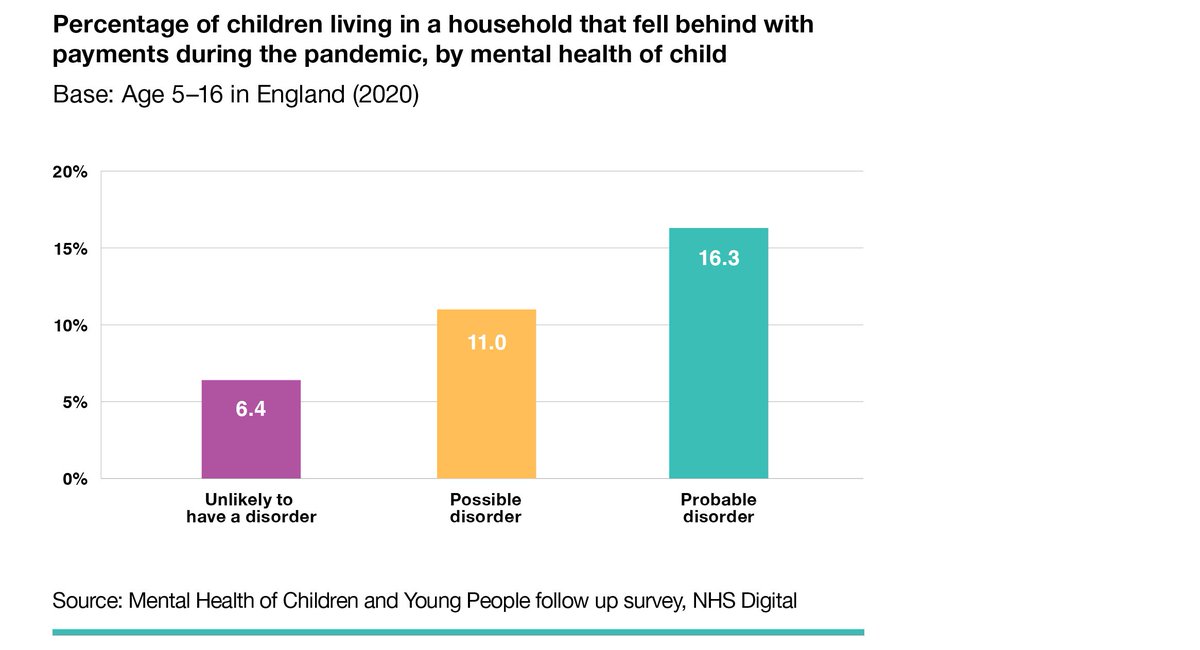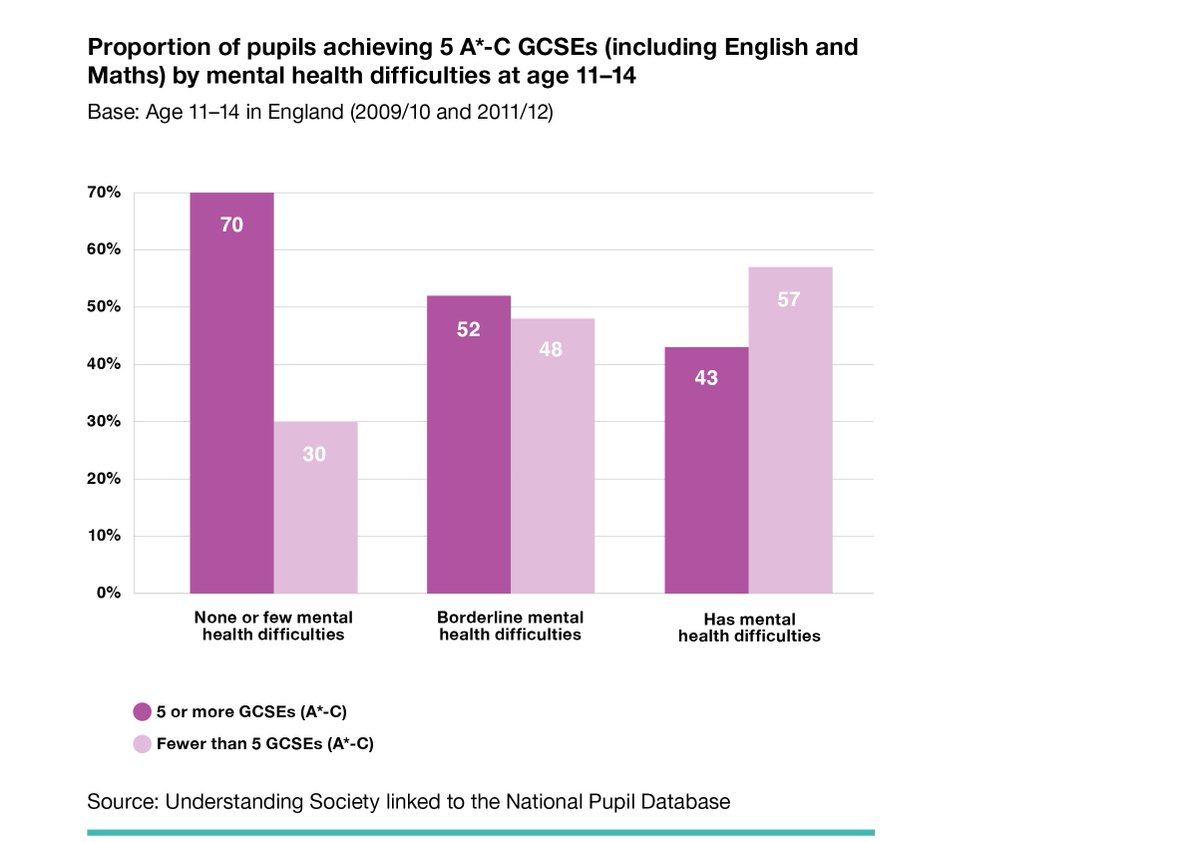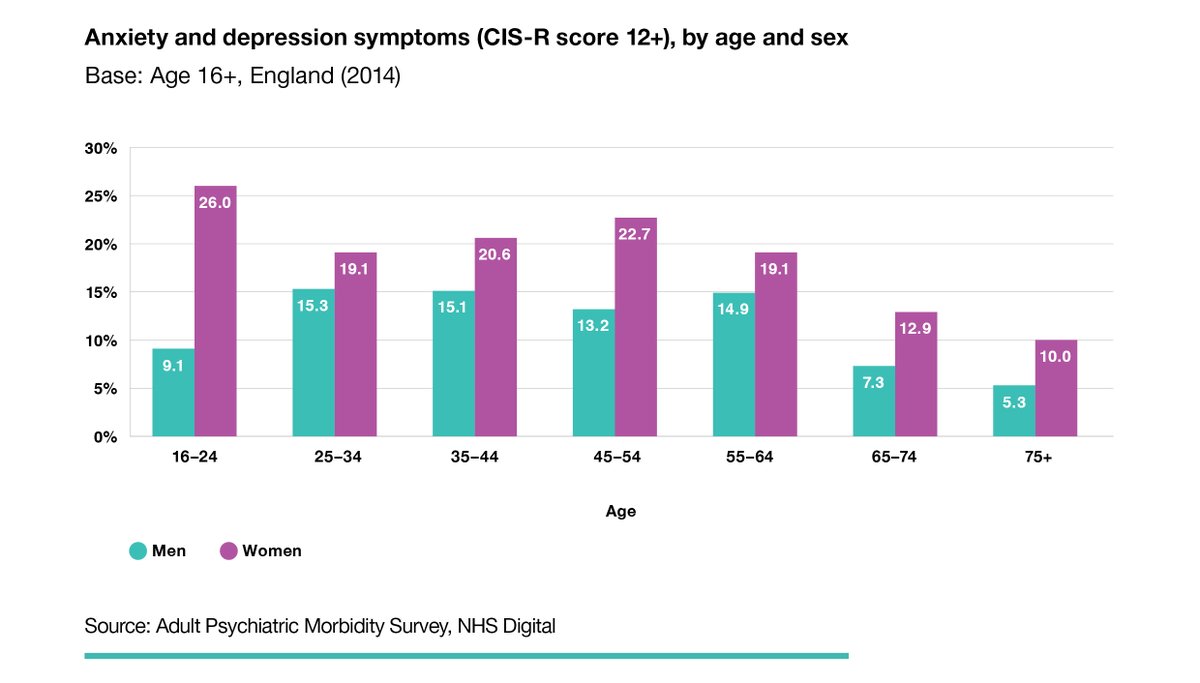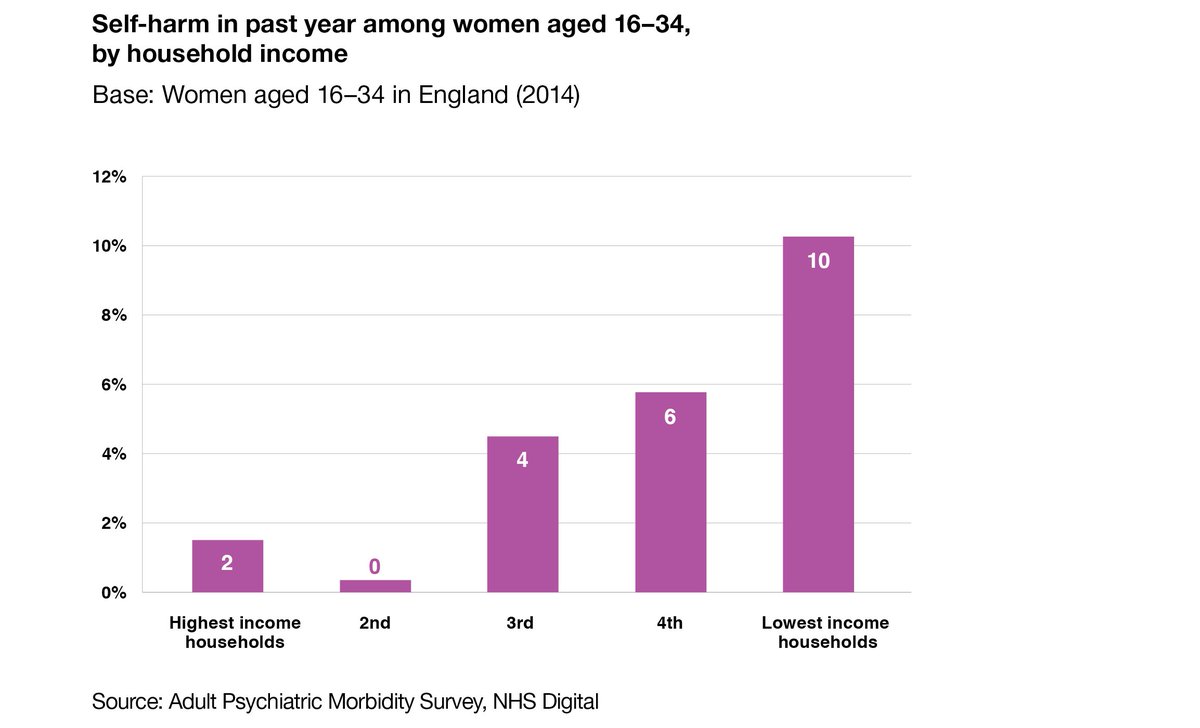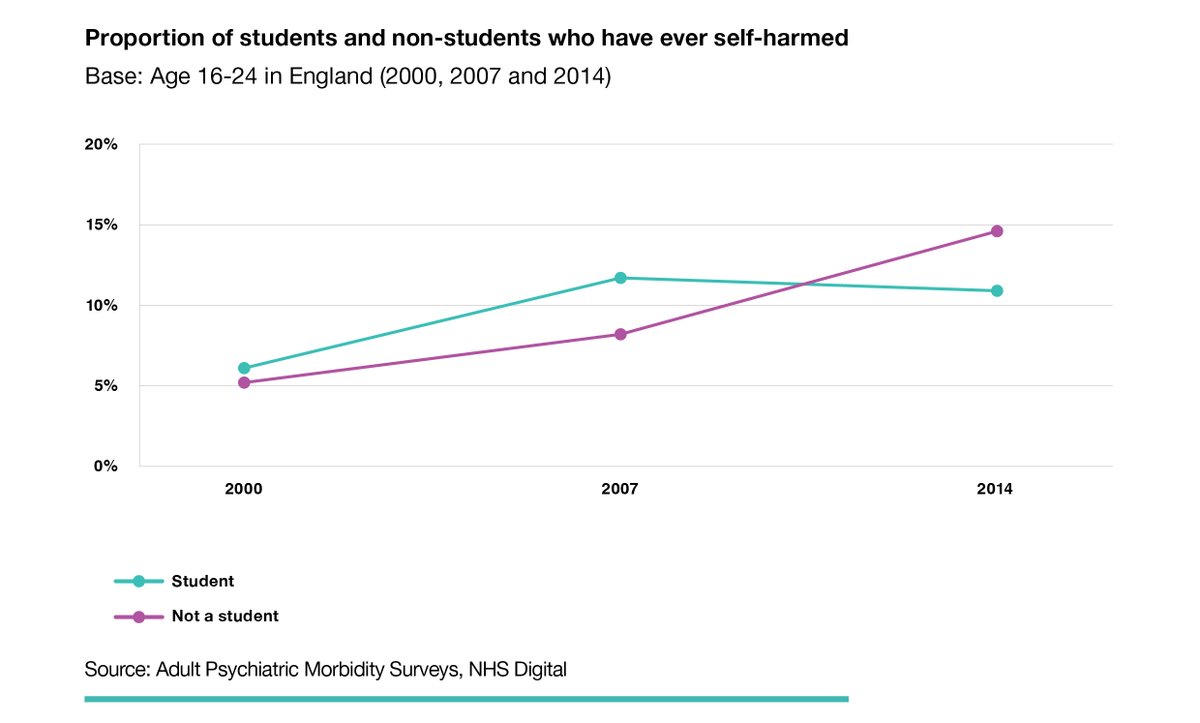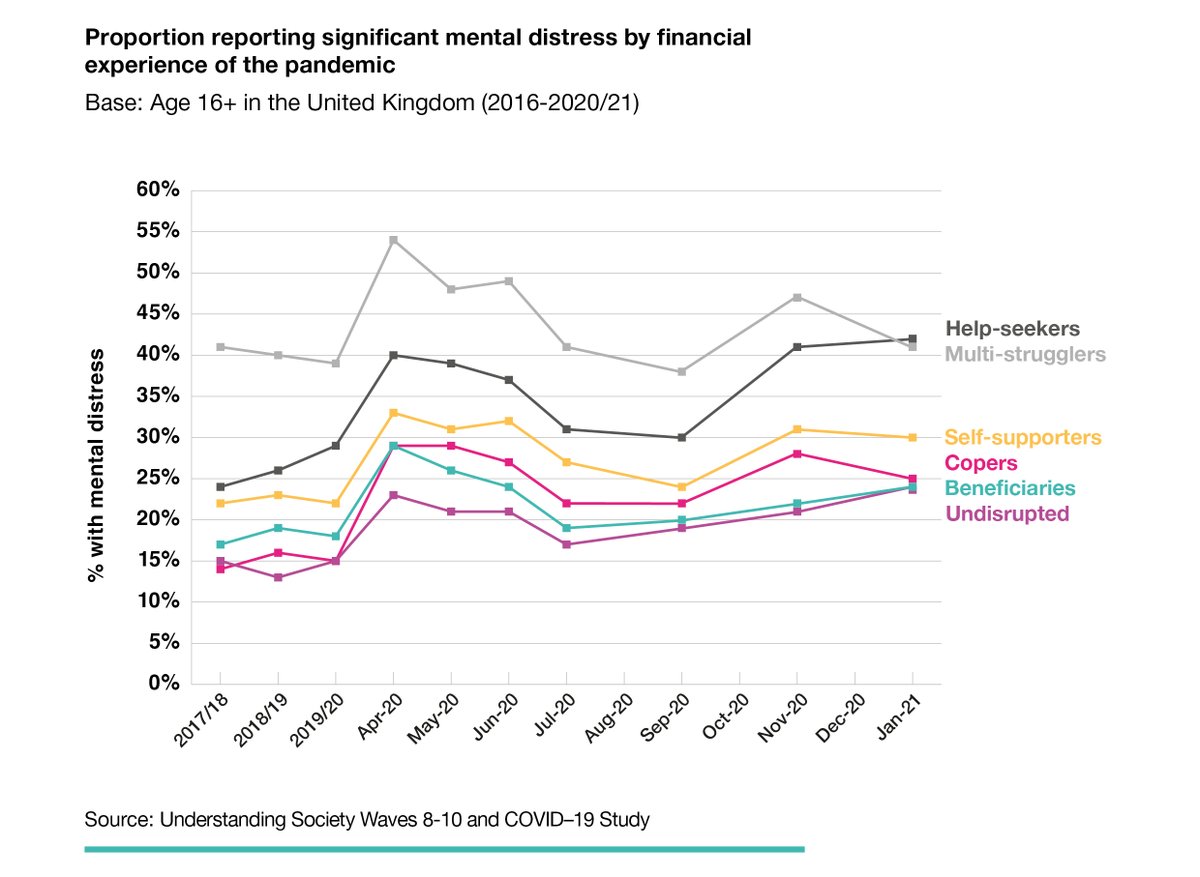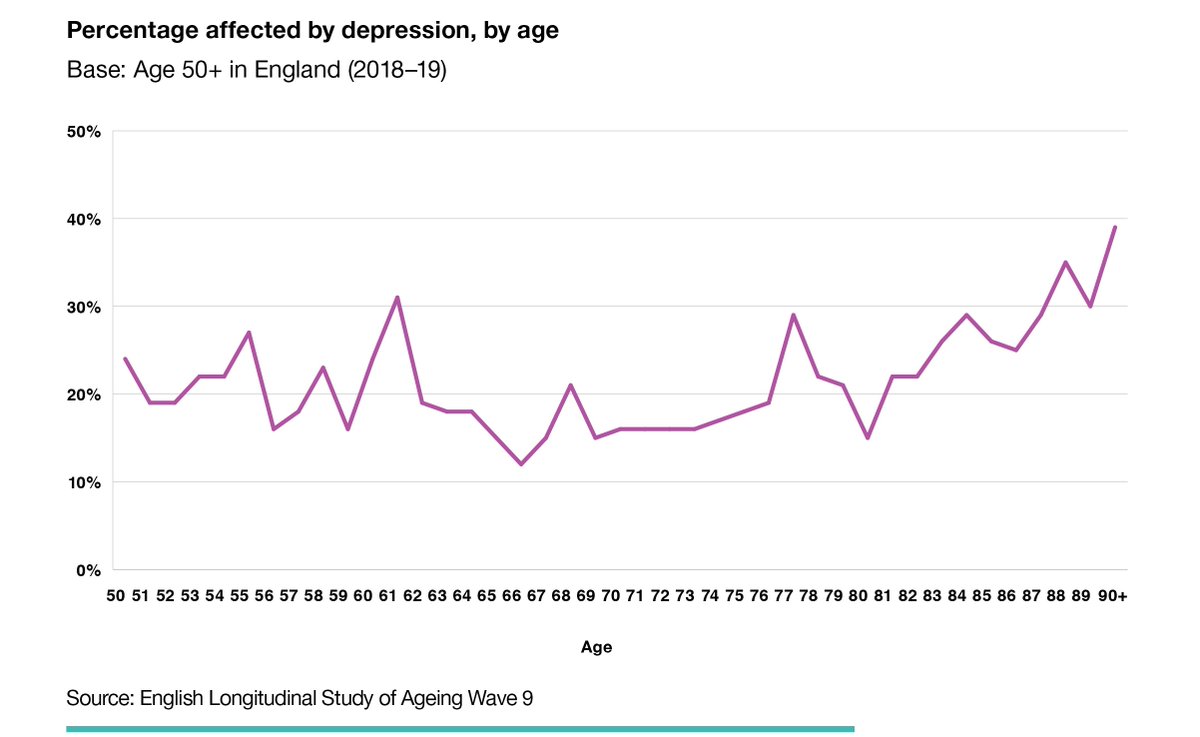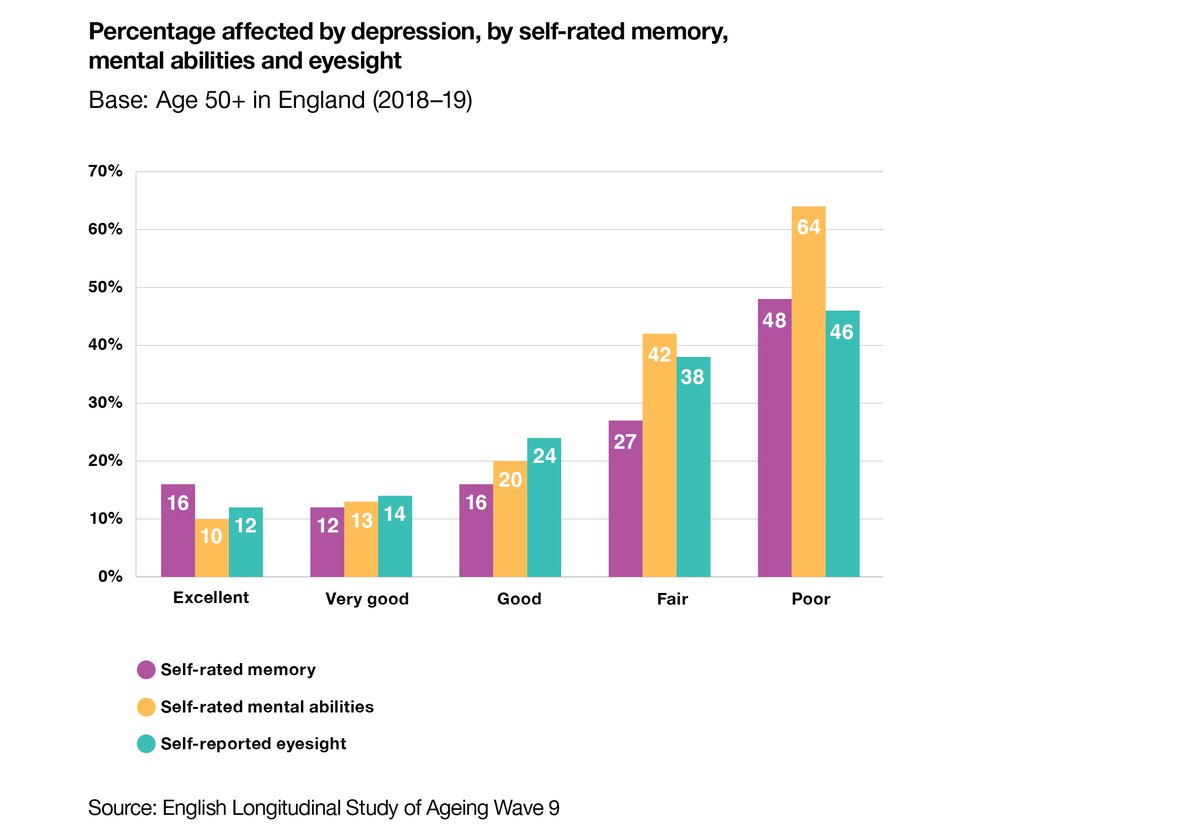THREAD "Mental health - should we be worried?"
Society Watch 2021 presents a snapshot of mental health in Britain today. Here we look at some of the report’s key findings on mental health for children, adults and in later years...
Read the full report at http://natcen.ac.uk/societywatch ">https://natcen.ac.uk/societywa...
Society Watch 2021 presents a snapshot of mental health in Britain today. Here we look at some of the report’s key findings on mental health for children, adults and in later years...
Read the full report at http://natcen.ac.uk/societywatch ">https://natcen.ac.uk/societywa...
2/ In July 2020, 1 in 6 children in England had a probable mental disorder, compared with 1 in 9 in 2017. Those with a probable disorder were more than twice as likely to live in households that fell behind with payments during the pandemic.
3/ In school, poorer mental health relates to lower performance in GCSE examinations. NatCen analysis shows 7 in 10 with no or few mental health difficulties at ages 11 to 14 achieved 5 GCSEs compared with just over 4 in 10 for those with mental health difficulties.
4/ Young women have emerged as a high-risk group in relation to mental health, with high rates of Common Mental Disorders, self-harm, and positive screens for post-traumatic stress disorder and bipolar disorder. The gap between young women and young men has increased over time.
5/ Analysis by NatCen and @Agenda_alliance found the proportion of young women who self-harmed in the past year was five times higher among those living in the most deprived households (10%) compared with those in the least (2%). This same pattern was found in relation to debt.
6/ There has been an upward trend since 2000 in self-harm among both students and non-students, suggesting when addressing young people’s mental health that there is a need for services and facilities accessible to both groups: http://natcen.ac.uk/societywatch ">https://natcen.ac.uk/societywa...
7/ In the workplace, perceptions of mental health prejudice have improved, but in the British Social Attitudes Survey 2015 over 80% said someone with a history of absence due to depression or schizophrenia was slightly or much less likely to be promoted: https://bsa.natcen.ac.uk/latest-report/british-social-attitudes-33/mental-health.aspx">https://bsa.natcen.ac.uk/latest-re...
8/ During Covid, mental distress remained greater for those with pre-existing conditions, in low-income homes, and of Asian ethnicity. Younger people, women, those with young children and in employment became at greater risk of increased mental distress: https://www.thelancet.com/journals/lanpsy/article/PIIS2215-0366(20)30308-4/fulltext">https://www.thelancet.com/journals/...
9/ People struggling with multiple financial issues experienced greater levels of distress both before and during the pandemic, and people newly seeking financial support appear to be particularly vulnerable to the mental health effects of the pandemic.
10/ In later years, NatCen analysis of @ELSA_Study shows depression increases with age and affects more than 30% of people in their late 80s and over 90 years old: http://natcen.ac.uk/societywatch ">https://natcen.ac.uk/societywa...
11/ For over 50s, depression is significantly associated with receiving state benefits, living with social isolation, experiencing at least one form of difficulty with activities of daily living, and with reporting having a poor memory, mental abilities and eyesight @ELSA
12/ In the pandemic, depression, anxiety and loneliness was greater in over 50s at high-risk and self-isolating, while depression was more common in those who had multimorbidity. More at http://natcen.ac.uk/societywatch ">https://natcen.ac.uk/societywa...

 Read on Twitter
Read on Twitter